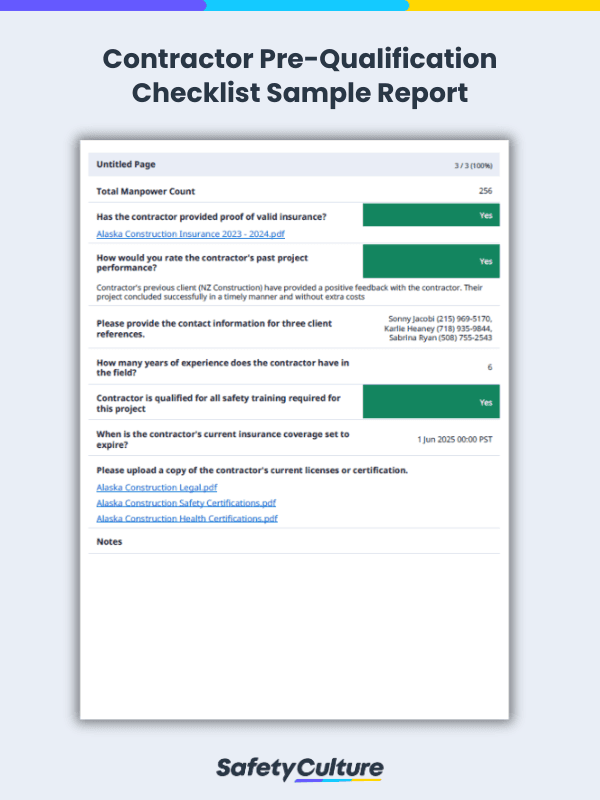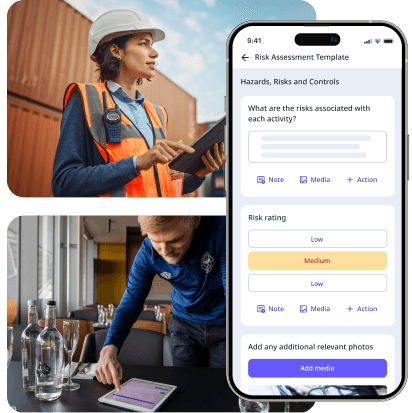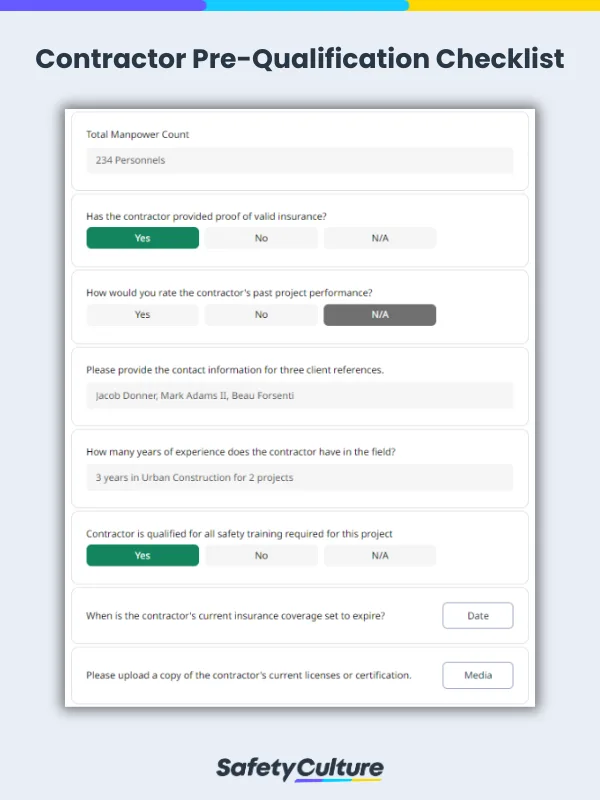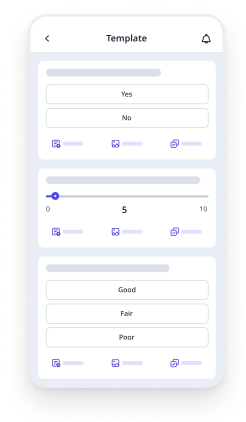Published 18 Apr 2024
Article by
3 min read
What is a Contractor Prequalification Checklist
A contractor prequalification checklist is a comprehensive tool used to assess and evaluate contractors before engaging in projects. It typically includes various criteria such as safety plans, insurance coverage, and overall safety performance. This checklist helps in ensuring that contractors meet specific standards and requirements before being considered for a project.
Importance and Benefits
A contractor prequalification checklist is essential for both general contractors and clients. It helps in mitigating risks, saving time and costs, ensuring quality work, enhancing communication, and ensuring that the contractors are suitable for projects by promoting the following:
Collaboration with Stakeholders – Having a checklist ensures that all stakeholders are involved in setting criteria and standards for contractor selection, fostering transparency and alignment among project participants
Identifying Project-Specific Criteria – A checklist helps in defining and identifying specific criteria tailored to the unique requirements of each project , ensuring that contractors possess the necessary skills, experience, and resources to meet project objectives effectively
Incorporating Legal and Regulatory Requirement –The checklist ensures that contractors meet all legal and regulatory obligations by including checks for licenses, permits, insurance coverage, and adherence to safety regulations, thus mitigating legal risks and ensuring compliance with industry standards
What to Include in a Contractor Prequalification Checklist
A contractor prequalification checklist should include several key elements to ensure a comprehensive evaluation of contractors’ capabilities and suitability for projects. Some of the essential components to consider include:
Company Information : Collect basic company details such as name, address, key contact information, and registration details.
Safety Performance : Assess contractors’ safety performance by reviewing their safety plans, incident reports, and compliance with safety regulations.
Insurance Coverage : Verify that contractors have adequate insurance coverage, including liability insurance, workers’ compensation insurance, and other relevant policies.
Financial Stability : Review financial statements, credit reports, and other financial documents to assess contractors’ financial stability and ability to handle project costs.
Project Experience : Evaluate contractors’ experience in similar projects, including their track record of delivering projects on time, within budget, and to the required quality standards.
Qualifications and Certifications : Verify that contractors have the necessary licenses, permits, and certifications to perform the work required for the project.
References and Recommendations : Request references from past clients and industry professionals to gauge contractors’ reputation and performance in the field.
Legal and Regulatory Compliance : Ensure that contractors adhere to all legal and regulatory requirements, including licensing, permits, and compliance with industry standards.

Contractor Pre-Qualification Checklist Sample Report | SafetyCulture


